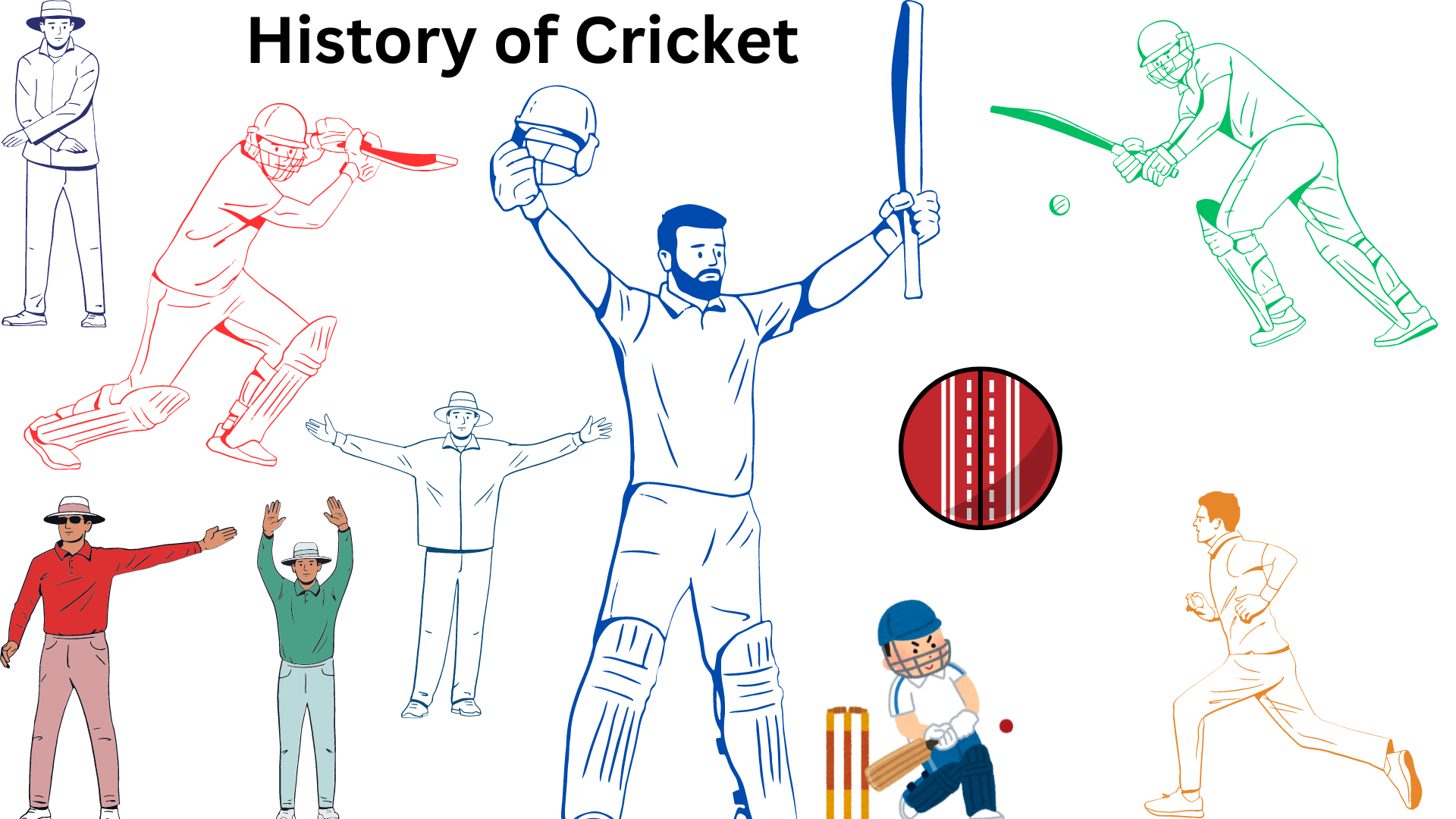Unveiling the Rich Tapestry: A Journey Through the History of Cricket

Cricket, often dubbed as the "gentleman's game," is steeped in tradition, heritage, and a legacy that spans centuries. From its humble origins to becoming one of the world's most beloved sports, the history of cricket is a captivating tale of evolution, innovation, and cultural significance. Let's embark on a journey through time to explore the fascinating history of cricket.
1- Origins and Early Beginnings:
The origins of cricket can be traced back to medieval England, where it emerged as a popular pastime among rural communities. Early references to cricket date as far back as the 16th century, with evidence of the sport being played in villages and towns across the English countryside.
Initially, cricket was a simple bat-and-ball game played on makeshift pitches, with rudimentary rules and informal matches. It gradually gained popularity among the English aristocracy, evolving into a more structured and organized sport by the 18th century.
2- Development and Expansion:
During the 18th and 19th centuries, cricket underwent significant transformation, with the establishment of formal rules, regulations, and organized competitions. The Marylebone Cricket Club (MCC), founded in 1787, played a pivotal role in standardizing the laws of cricket and promoting the sport's growth.
Cricket's popularity spread beyond England's shores, thanks to British colonialism, trade, and cultural exchange. The sport found fertile ground in colonial territories such as India, Australia, the West Indies, and South Africa, where it became deeply ingrained in local cultures and identities.
3- Golden Era and International Cricket:
The late 19th and early 20th centuries witnessed the emergence of international cricket, with England hosting the inaugural Test match against Australia in 1877. Test cricket, characterized by matches played over five days, became the pinnacle of the sport, showcasing the talents of legendary players such as Sir Don Bradman, W.G. Grace, and Sir Jack Hobbs.
The formation of the International Cricket Council (ICC) in 1909 marked a significant milestone in the globalization of cricket, laying the groundwork for international competitions and fostering camaraderie among cricket-playing nations.
4- Modernization and Innovation:
The latter half of the 20th century witnessed rapid modernization and innovation in cricket, with the introduction of limited-overs formats such as One Day Internationals (ODIs) and the revolutionary Twenty20 (T20) cricket.
ODIs, characterized by shorter matches and colored clothing, gained immense popularity, culminating in the inaugural Cricket World Cup in 1975. The T20 format, introduced in the early 2000s, revolutionized the sport with its fast-paced action, high-scoring games, and global appeal.
5- Global Phenomenon and Cultural Impact:
In the 21st century, cricket has emerged as a global phenomenon, captivating audiences across continents and transcending cultural boundaries. The Indian Premier League (IPL), Big Bash League (BBL), and other domestic T20 leagues have become lucrative platforms for players, showcasing the sport's commercial viability and entertainment value.
Cricket's cultural impact extends beyond the boundaries of the playing field, influencing art, literature, music, and popular culture. From iconic cricketing moments immortalized in literature to cricket-themed films and music, the sport continues to inspire and resonate with millions of fans worldwide.
As we reflect on the storied history of cricket, we are reminded of its enduring legacy and universal appeal. From its humble beginnings on village greens to becoming a global spectacle watched by billions, cricket embodies the spirit of competition, camaraderie, and sportsmanship.
As the sport continues to evolve and adapt to the changing times, one thing remains certain: cricket will forever hold a special place in the hearts of fans, uniting people from diverse backgrounds in their shared love for the game.